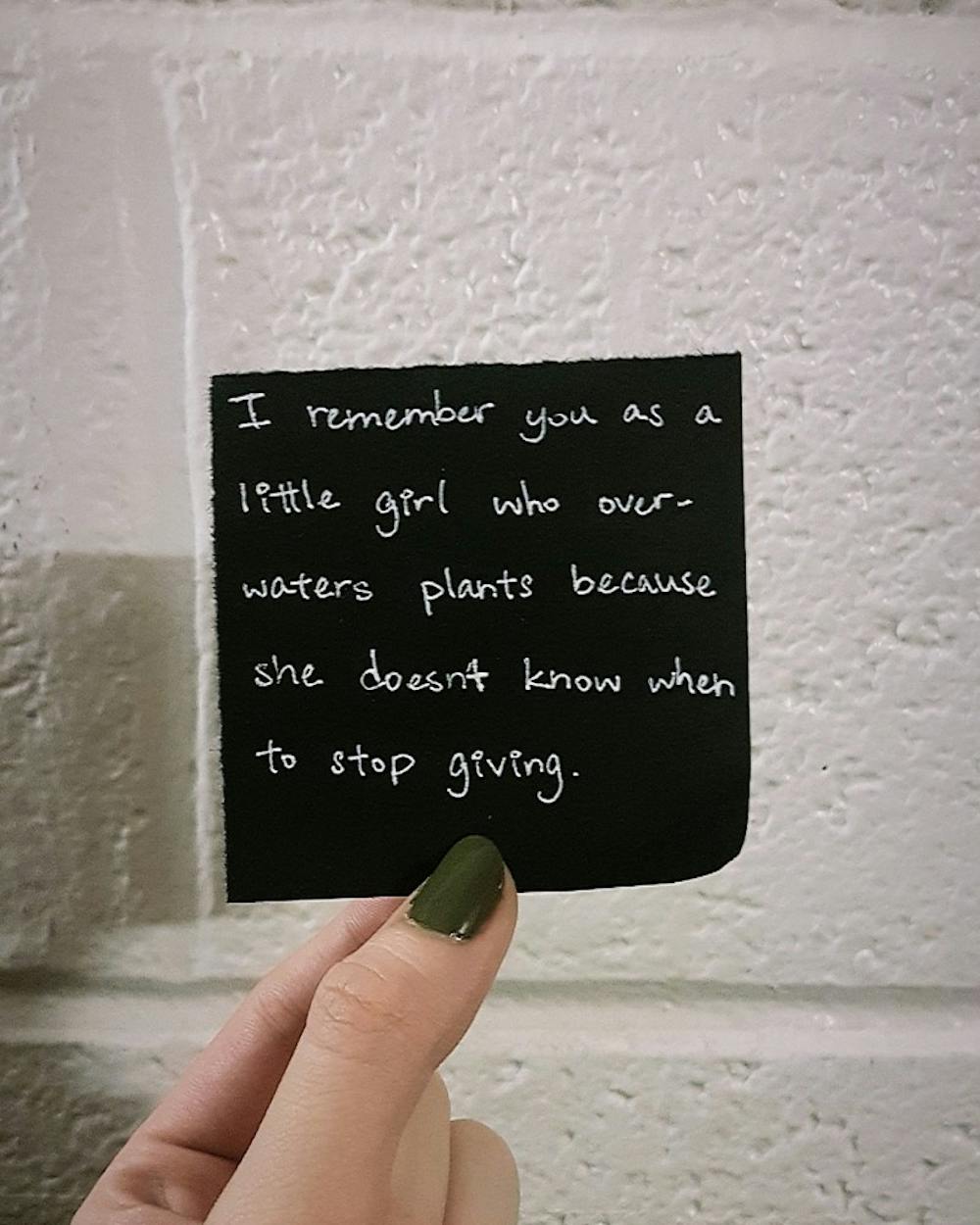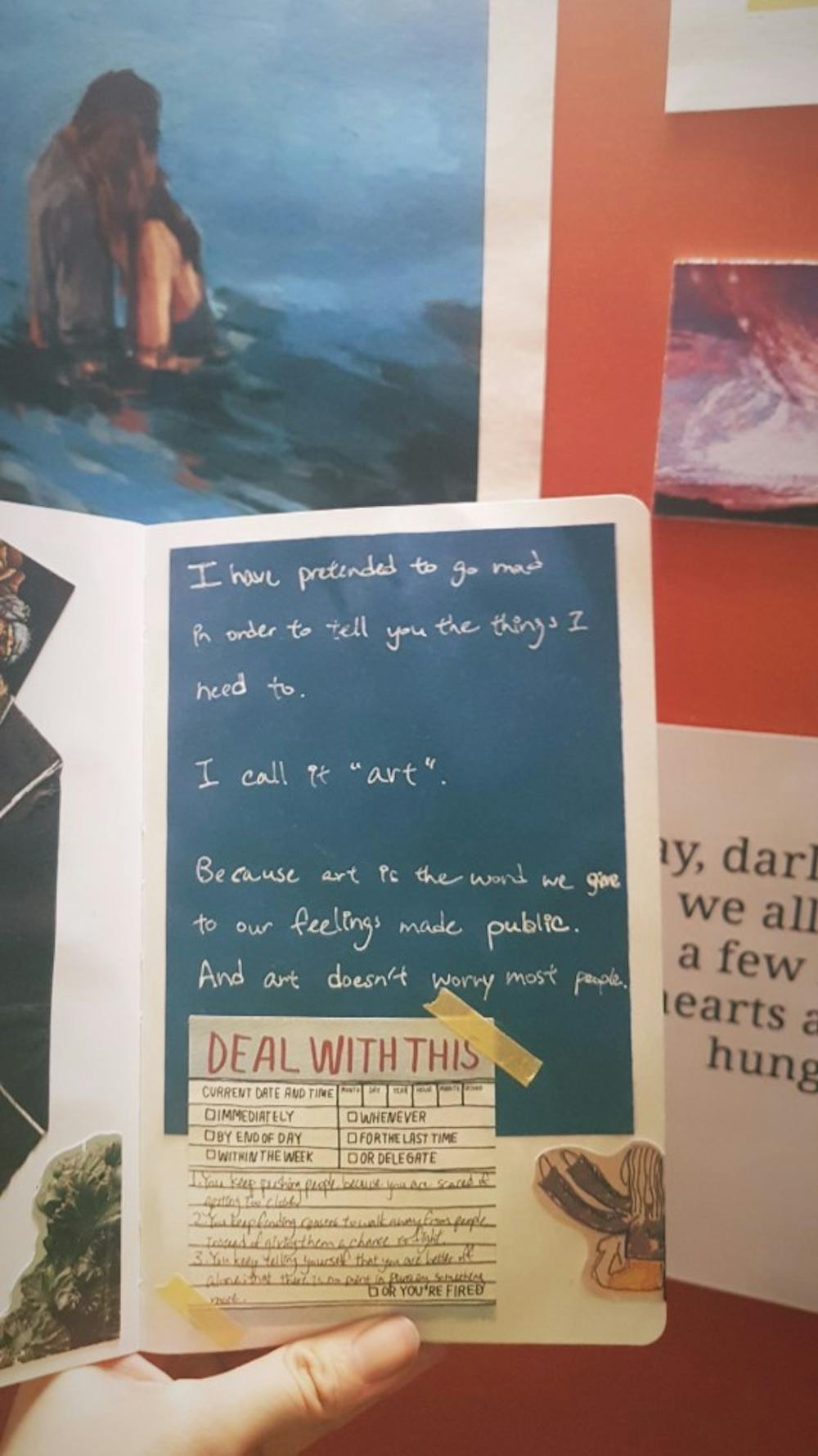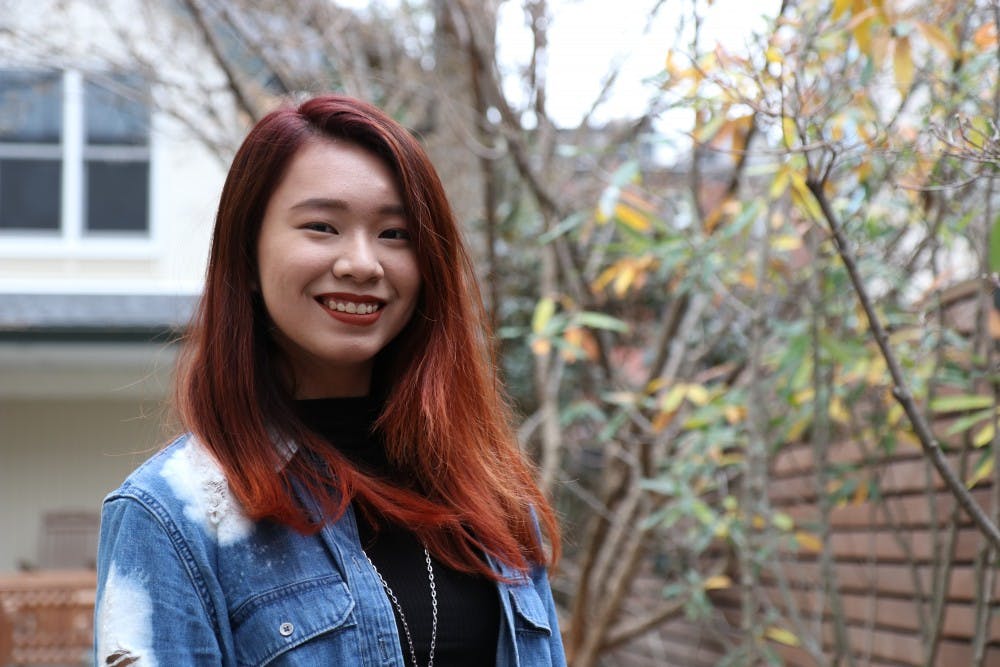“Are we poets because of what we’ve went through or because we want to write.”
I’m expecting inflection at the end of that sentence, but it’s missing. Instead, the line registers as a declarative statement. It is akin to the seemingly paradoxical puzzle pieces that perfectly fit together for photographer and poet Emily Yao (C'21).
Yao is sitting directly next to me. Her hair is composed into a ponytail, almost but not quite, concealing the electric blue strands at the tips. There is a practiced distance to Yao. When discussing the inception of her poetry–photography Instagram account (@smileycammie), she laughs about creating the account before the “required age,”—these brief, shared moments of laughter reveal her dimpled smile.
“In 9th grade, I began to—and still do,” she quickly caveats, “struggle with body image, I couldn’t stand to see photos of myself and couldn’t look in the mirror for a long time, I didn’t want to delete my account, so I thought, what else can I do.”
Her Instagram shift is an departure from the “actual Instagram”—she places in air quotes with a gesture of her hands—which emphasizes the body, the amount of likes and followers, and a perfectionistic ideal. Rather than images of her external figure, she showcases the internal, by sharing her most vulnerable thoughts.
Yao achieves a comfortable equilibrium in her work. She shares her inner dialogue, while also walking the fine line of keeping herself hidden. She intentionally masks the particulars of her life with a vagueness that allows the reader to insert themselves, as well as Yao to evacuate herself. I think of my own Google Drive folder, named “Writing” with at least twenty different narratives from the past three months; writings I would not share with anyone, and definitely not the internet.

Courtesy of Emily Yao.
Yao and I have this anxious feeling in common, yet, she is the one who takes the next brave step. She has something to say, and she knows how to say it. Her work is deeply, almost unnervingly, relatable, to the point where I often feel that Yao has secret access to my own inner dialogue and thoughts. On the troubles of inner turmoil, she writes, “My mind understands the facts / But my heart chooses to believe / The screeches my inner demon wails / The monotone drone of anxiety / And the white noise I've come to learn as depression.” Here, Yao's poetry perfectly captures what many of us feel, yet struggle to convey.

Courtesy of Emily Yao.
Despite the authenticity of her words, she describes her writing process as communicative of the fact that “there are ways to open up while still putting a protective layer around you, people who have been through trauma it’s very hard to open up, but it’s not impossible.”
She continues by saying, “emotions don’t make you weak,” and adding that “poetry became a form of something for me to tell people 'I’m going through this,' instead of straight up saying it out loud, instead of saying ‘Hey I’m going through something, I’m not doing well.' It’s different than saying that.” Yao's art, in both words and visual imagery, are a physical representation of emotion; not only are they a work of inner reflection, but also an outlet for readers to express themselves.
She concludes by sharing a poem she has not published yet. It reads, “I have pretended to go mad in order to tell you the things I need to / I call it “art” / Because art is the word we give to our feelings made public / And art doesn’t worry most people.”

